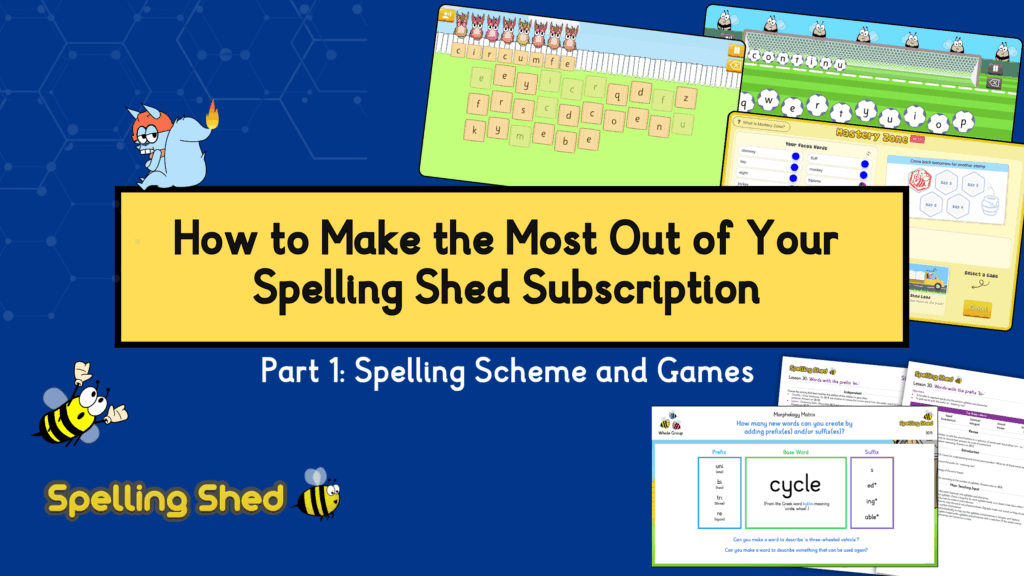Whether you’re new to Spelling Shed or have used Spelling Shed for years, it’s always useful to make sure you are getting the most out of your subscription, especially because there are always new features being released to enhance your experience.
What once started as an app has escalated into a full multi-award-winning, innovative spelling platform that now includes a research-based spelling scheme, spelling games, a full grammar curriculum, grammar games, Mastery Zone, end-of-term assessments, data and assessment tools, leagues, challenges and a writing scanner! Plus, Spelling Shed’s app is now the UK’s number 1 best-selling spelling app.
Spelling Shed has everything you need to teach and lead spelling effectively.
This is part 1 of ‘How to Make the Most Out of Your Spelling Shed subscription.
Research-Based Spelling Scheme
Spelling Shed is made by educators for educators. A common problem that a lot of educators experience when it comes to spelling is that they give children a list of words to learn for the week; they might explore the words before testing the pupils and although pupils might do well on the test, when it comes to writing, they do not apply the spellings. This can be frustrating, but if this cycle is familiar to you, then you are not teaching spelling effectively; you’re not really teaching it at all. That’s why we created Spelling Shed’s scheme.
Spelling Shed’s scheme is based on up-to-date research into spelling instruction. It uses proven strategies to teach spelling effectively. This includes using phonics as a base, incorporating morphology and etymology as well as including activities that support orthographic mapping.
There are thirty-six lessons for each year group (Year 1 – Year 6) as detailed on Spelling Shed’s medium-term plan. Each lesson includes a clear lesson plan, lesson presentation, worksheets, a homework sheet and a homework answer sheet. We know how busy educators are; therefore, the lesson plan is split into modular components to fit into the various timetables that may be in place in your school. This ensures that you have flexibility while maintaining consistency across your school. For example, a Year 4 teacher might decide that they want three 20-minute spelling sessions per week, while a Year 6 teacher might decide they want to teach one 1-hour session per week; our modular components enable this while maintaining consistency.
For Key Stage One, we recommend teaching Spelling Shed alongside your phonics scheme, as most phonics schemes do not cover all spelling objectives.
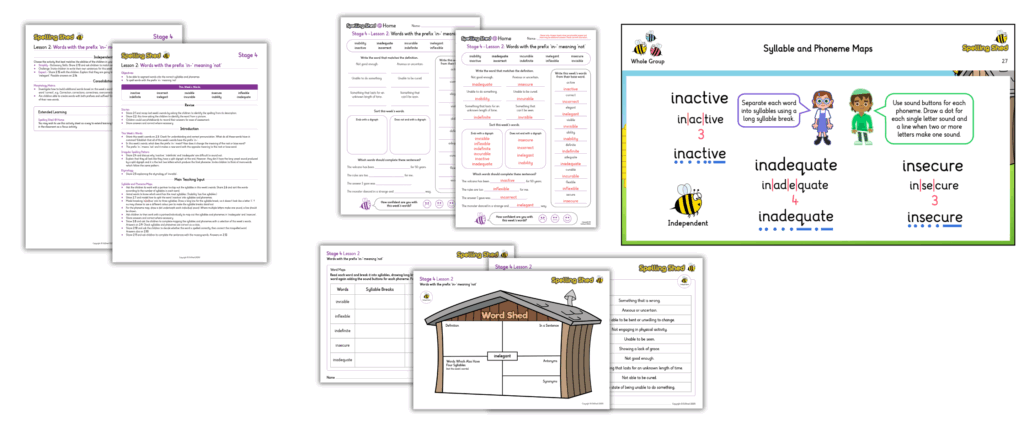
Read Spelling Shed’s full scheme guidance here and download sample lessons for each year group here.
Spelling Games
If your pupils aren’t playing Spelling Shed games, then they’re missing out! Spelling Shed games are enjoyed by millions of children worldwide. Spelling Shed games can be assigned to pupils or simply played by logging into the app or web browser.
Alongside the spelling lesson, you can set assignments for pupils to complete. The assignment will consist of a list of words, which are examples of the spelling pattern that the pupils have been exploring. The assignments show as fun and engaging games for pupils. Pupils can choose between a wide range of games to complete the assignment.
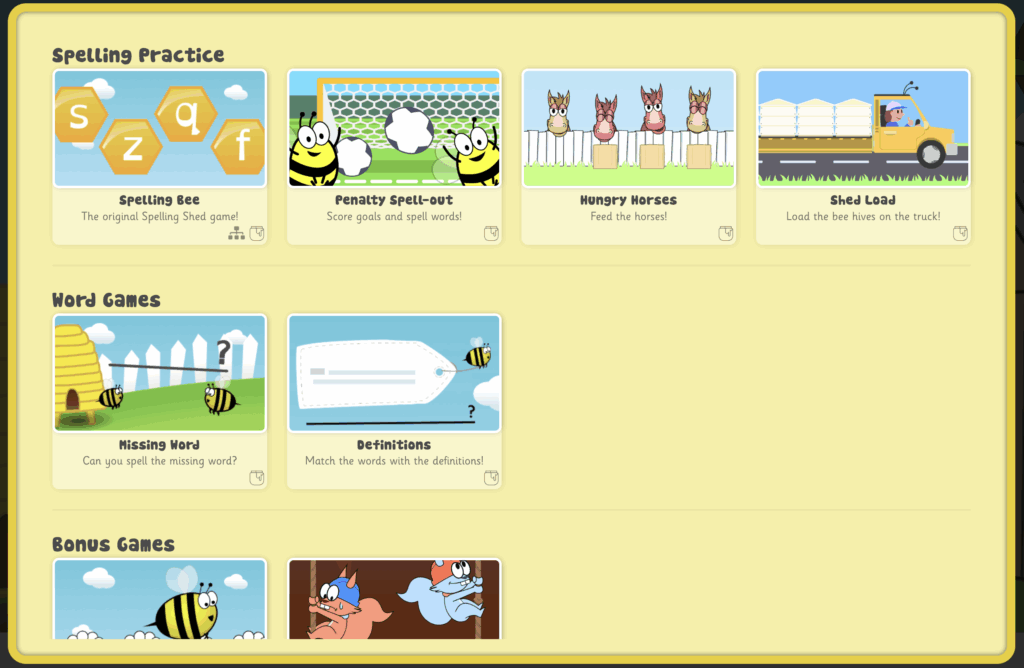
Levels of Difficulty
Pupils can play at their own level and pace by selecting the level that they would like to play: easy, medium, hard or extreme!
Easy
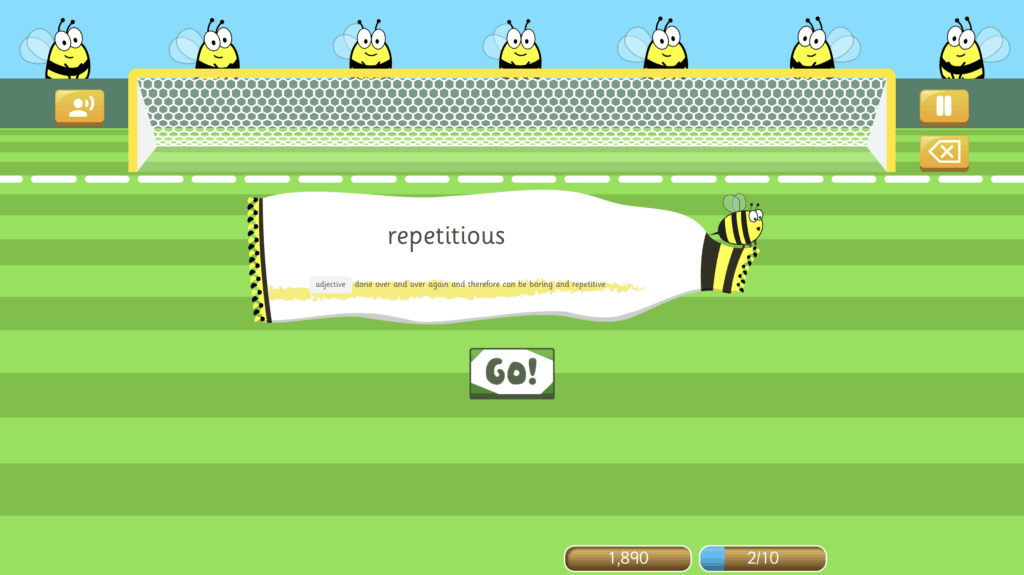
If pupils select ‘Easy’, the word will appear on the screen so that they can read it before they spell it. Pupils can read the word for as long as they like before pressing ‘Go!’
Medium

Medium does not allow the pupil to read the word. They will listen to the word and then select the correct spelling from the jumbled letters.
Hard
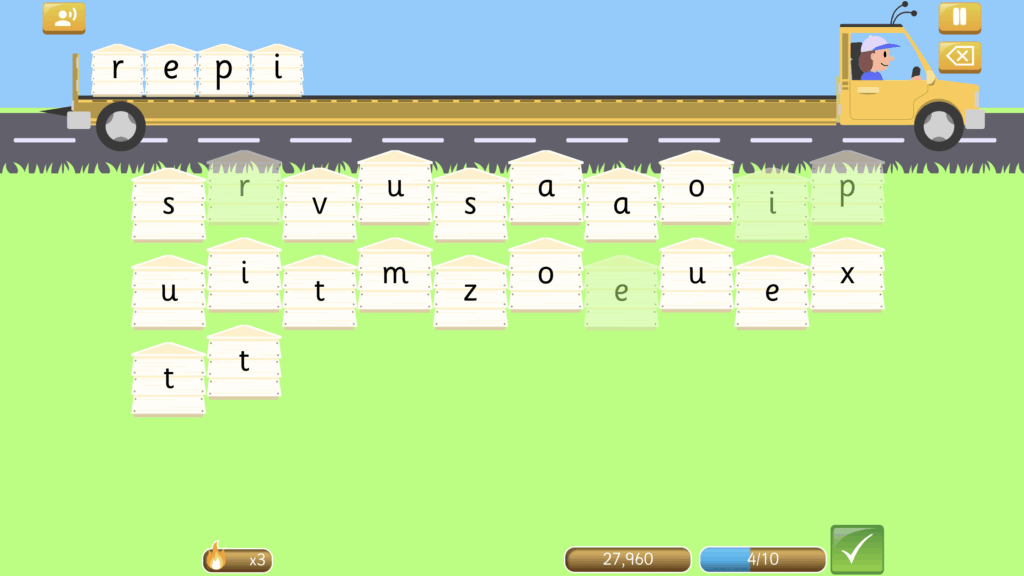
The pupil will listen to the word and then select the correct spelling from the jumbled letters. There will be an increased number of letters on the screen, so they must carefully select the correct ones.
Extreme

If pupils are feeling confident, they might decide to play on extreme. The pupil will listen to the word before selecting the correct letters from the full QWERTY keyboard!
In all levels and games, pupils can select the letters or graphemes by typing or touching the screen (if using tablets or touch-screen devices.)
Phonics On?
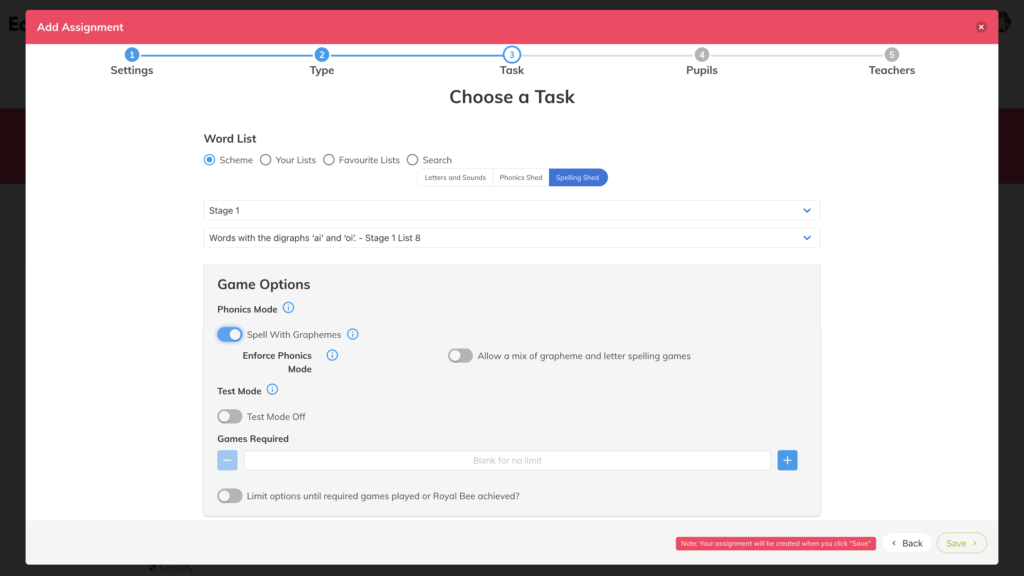
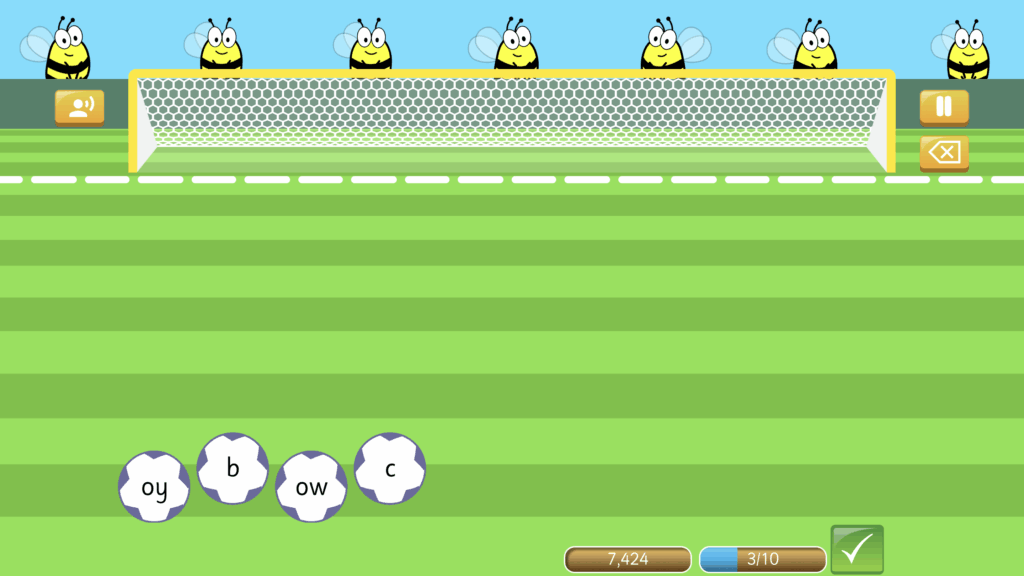
When setting the assignment, you can select phonics mode so that children can spell with graphemes.
Test Mode


Want to make spelling tests more fun and easier to mark? Spelling Shed’s games can be set as a test. Simply select ‘Test Mode’ when setting the assignment. The pupil will only complete the set test once. Scaffolding is removed and pupils will listen to the word and then select the correct spelling from the jumbled letters. Educators will receive immediate feedback once the test is complete.
Educators can also select whether they want pupils to complete the test or set assignments before playing any other Spelling Shed games.
Rewards and Feedback
Children receive instant feedback as to whether they spelled the word correctly or incorrectly and get a full report of their gameplay after they have completed the game. Children are rewarded with honeypots, which can be spent on their avatar.
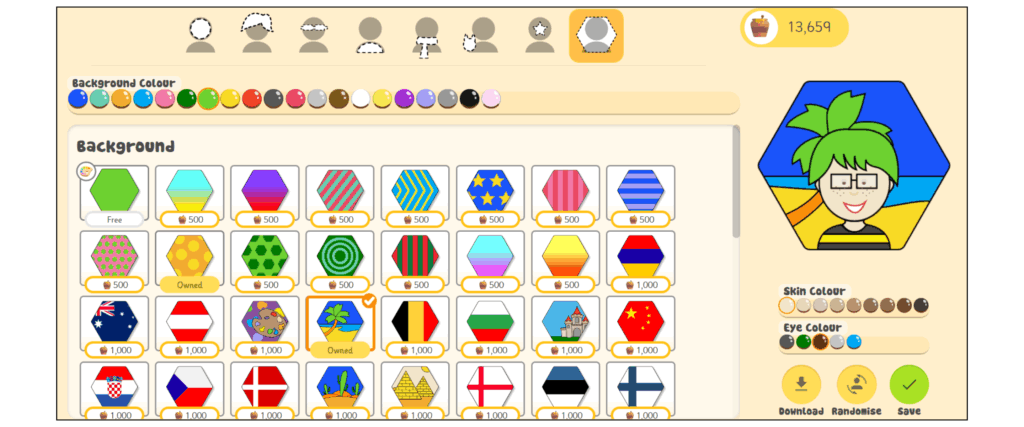
By providing multi-level games, instant feedback and rewards, the games take the anxiety out of spelling by ensuring every pupil experiences success. Spelling Shed games provide multimodal learning options, such as being able to see the word on screen before attempting to spell it and audio assistance so words are pronounced aloud. Spelling Shed is proven to be effective for children with dyslexia, ADHD and autism.
Assignment Sets
Want to feel organised and reduce your workload? Assignment sets are a game-changer when it comes to sending home spelling homework. Assignment sets allow educators to create assignments for the entire academic year! You can even put in your half-term holidays, so children do not receive set assignments during those weeks.
Hive Games
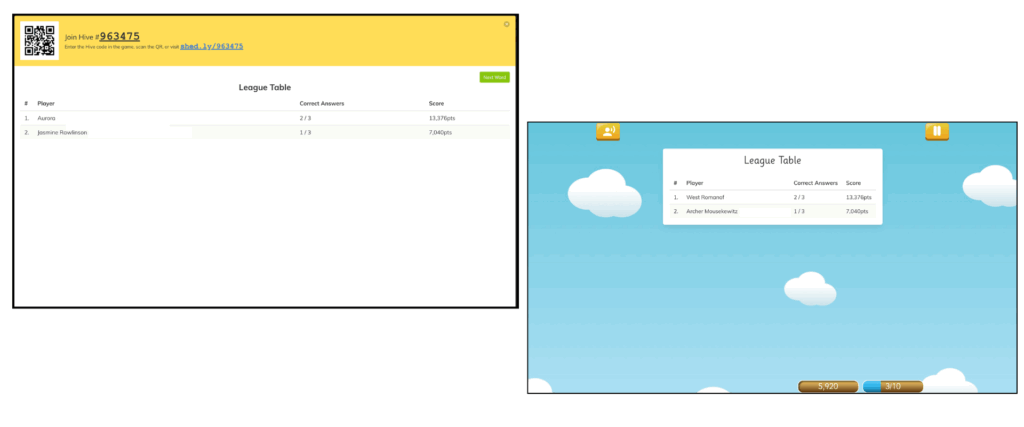
Children love Spelling Shed’s hive games. They are sure to create a buzz in the classroom. Hive games can be set up by educators or pupils. They are a live-multiplayer game allowing children to play the same spellings at the same time, so they can play together in real time. If you set this up as an educator, you can also see how each pupil is getting on in the game and you might choose to display the live leaderboard. Hive games can also be used as an assessment tool and data is fed into a handy data report.
Mastery Zone

Mastery Zone was recently added to Spelling Shed. Mastery Zone is an AI-driven tool that identifies and fills gaps and personalises learning. This is a crucial tool for teachers, Mastery Zone begins by guiding each pupil through a diagnostic to determine their strengths and areas for improvement.
Once a baseline has been established, ten focus words are selected that will come up frequently during gameplay. The ten words are combined with other words from a combination of Stages.
When a word has been spelled correctly, it is played on more difficult levels until the pupil has mastered it. Once mastered, this word will appear in their Mastered Words list. Pupils receive a bumble stamp for each consecutive day played. Once they have completed a 5-day streak, they receive a bonus of 100 honey pots that can be used to personalise or buy accessories for their avatar.
Data from Mastery Zone feeds into the individual pupil page so teachers can track the pupil’s current focus words, how many rounds they’ve played, how many words they’ve played, the number of words mastered, their current stamp count and the amount of bonus honey pots they’ve earned. You can also see which words have been spelled correctly and incorrectly by each pupil and how they have spelled or misspelled it.
Read part 2 of How to Make the Most Out of Your Spelling Shed Subscription here.

